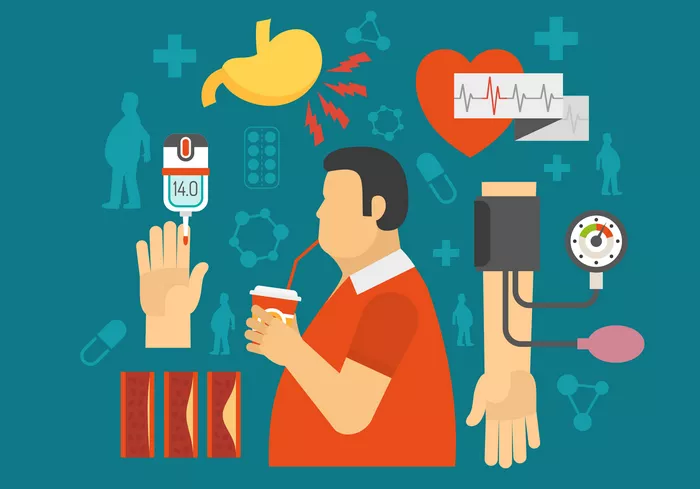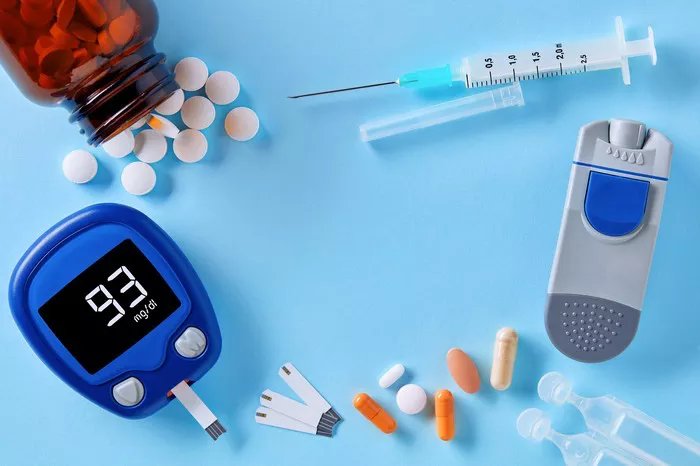High glucose levels, also known as hyperglycemia, occur when there is an excess of glucose (sugar) in the bloodstream. This condition is significant in the context of health, particularly concerning conditions like diabetes. Glucose is a primary source of energy for the body’s cells, and its regulation is crucial for maintaining overall health and well-being.
Insulin Resistance: A Primary Cause of High Glucose Levels
Insulin, a hormone produced by the pancreas, plays a vital role in regulating blood sugar levels. After eating, the pancreas releases insulin into the bloodstream in response to rising blood sugar levels. Insulin acts as a key that unlocks cells, allowing glucose to enter and be used for energy or stored for later use. This process helps keep blood sugar levels within a healthy range.
Insulin resistance is a primary cause of high glucose levels. It occurs when cells throughout the body fail to respond properly to insulin, impairing glucose uptake. As a result, the pancreas produces more insulin to compensate for the resistance, leading to elevated blood sugar levels. Over time, insulin resistance can progress to type 2 diabetes if left untreated.
Type 1 Diabetes: Lack of Insulin Production
In type 1 diabetes, high glucose levels result from a lack of insulin production. This occurs when the immune system mistakenly attacks and destroys the insulin-producing beta cells in the pancreas. Without enough insulin to facilitate glucose uptake into cells, blood sugar levels rise, leading to hyperglycemia. Type 1 diabetes typically develops in childhood or adolescence and requires lifelong insulin therapy for management.
Type 2 Diabetes: Insulin Resistance and Relative Insulin Deficiency
Type 2 diabetes is characterized by insulin resistance and relative insulin deficiency. In this condition, cells become resistant to the action of insulin, making it difficult for glucose to enter cells. Additionally, the pancreas may not produce enough insulin to overcome the resistance, leading to elevated blood sugar levels. Risk factors for type 2 diabetes include obesity, sedentary lifestyle, genetics, and advancing age.
Gestational Diabetes: High Glucose Levels During Pregnancy
Gestational diabetes is another potential cause of high glucose levels, occurring during pregnancy. Hormonal changes during pregnancy can lead to insulin resistance, resulting in elevated blood sugar levels. Gestational diabetes increases the risk of complications for both the mother and baby and requires careful monitoring and management during pregnancy.
Other Contributors to High Glucose Levels
Certain medications, such as corticosteroids and some antipsychotic drugs, can cause high glucose levels as a side effect. Additionally, health conditions such as hormonal disorders (e.g., Cushing’s syndrome), pancreatic disorders, and certain infections can contribute to elevated blood sugar levels.
Dietary and Lifestyle Factors
Dietary factors play a significant role in blood sugar regulation. Consuming carbohydrate-rich foods, sugary beverages, and excessive calories can cause spikes in blood sugar levels. Sedentary behavior, lack of physical activity, and excessive stress can also contribute to high glucose levels. Adopting healthy lifestyle habits, including regular exercise, stress management techniques, and a balanced diet, can help improve blood sugar control.
Genetic Predisposition
Genetics can predispose individuals to high glucose levels and diabetes. Family history and genetic factors may increase the risk of developing insulin resistance or impaired insulin production, contributing to elevated blood sugar levels.
Monitoring, Management, and Prevention
Monitoring blood sugar levels regularly is essential for individuals at risk of or diagnosed with high glucose levels or diabetes. Proper management includes medication adherence, dietary modifications, regular physical activity, and regular medical check-ups. Preventive measures, such as maintaining a balanced diet, engaging in regular physical activity, managing stress levels, maintaining a healthy weight, and avoiding tobacco use, can help prevent high glucose levels and diabetes.
conclusion
understanding the causes and implications of high glucose levels is crucial for maintaining overall health and well-being, particularly in the context of diabetes. By addressing underlying factors, adopting healthy lifestyle habits, and seeking guidance from healthcare professionals, individuals can effectively manage high glucose levels and reduce the risk of complications.
Related Topics:
What Is A Dangerous Level Of A1C?
What Is A Good Range For Blood Sugar?
What Is A Good Glucose Level In The Blood?

























